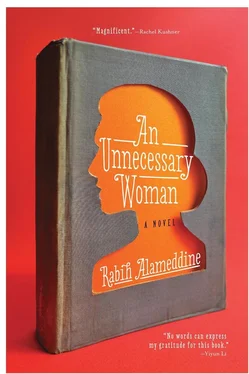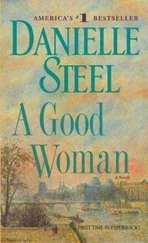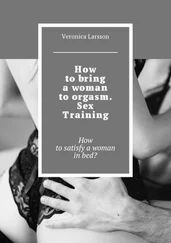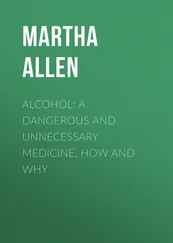“You have to be more specific,” my great-niece says.
She’s off the couch now, standing beside me. If I stay a bit longer, if I continue to linger in her presence, I wonder whether she’ll end up sitting on my lap.
“She doesn’t answer if I ask a general question,” she says, “but if I ask whether her back hurts, she might. Sometimes I have to ask about every body part one by one.” She nods while speaking, as if she’s agreeing with what she’s saying. Her voice seems to have an element of delirium. “Before you came in, she answered yes to whether she was thirsty, but when I brought the glass of water, she was asleep, so I drank it.”
My great-niece’s excitement is so high that I wonder if I should hold on to her so she doesn’t launch herself at the ceiling.
“Mother,” I say, “does your back hurt?”
My mother pays no attention, as if I don’t exist. I have to control the urge to lean forward and smack her.
“How can I ask her anything if she doesn’t hear a word I’m saying?” I mutter.
“Hold her hand,” my great-niece says. “She doesn’t always know you’re speaking to her. Sometimes you have to touch her, otherwise you might be sitting here for hours and she’ll be off in her own world.”
She puts her hand on my shoulder, but withdraws it when I instinctively flinch. She folds her hands into the small of her back. What can I say? Judging from her enthusiastic agitation, I’m afraid she’ll go Ancient Mariner on me. “ The guests are met, the feast is set .” Let me be.
“Go on,” she says. “Hold her hand. She won’t hurt you. She doesn’t bite.”
“Oh, but I might, so better be careful.”
Can I get any sillier than this in my old age? Trying to be funny for a teenager, my jokes as bad as Fadia’s. Maybe I should pick up Fadia’s boisterous laugh as well. I’ll ride out on a lame horse toward a simulacrum sunset with a comedy drum roll and cymbal crash.
“Haha,” she says with amused sarcasm. “That was almost as unfunny as Grandpa’s jokes.”
In my hand, my mother’s feels breakable; it is skin and bones — desiccated skin that lacks any semblance of elasticity. My great-niece is right, though. My mother looks suddenly alert.
“Does your back hurt?” I ask.
She shakes her head no. She removes her hand from mine and points toward her shoes with a skinny finger that looks surprised that it can hold itself aloft. “My feet,” she says softly, gently.
“Your feet?” I ask, pointing toward her shoes to make sure.
“Her feet,” my great-niece says. “Yes, it must be. She’s never pointed to her feet before.”
I now have a sidekick.
“Can I see?” I ask my mother. “I’ll need to take your shoes off.”
I don’t know why I’m making such an offer. She’s not wearing any socks or nylons under her low black heels. For all I know she may have callouses, and will I be able to help her with that? Contagious fungi, gigantic bunions, ingrown warts, lacerations, ulcerations? What if she’s accumulated blisters on the bottoms of her feet like barnacles on the bottom of a boat — a boatload of blisters?
I bought my first pair of slippers after I left her house. She wouldn’t allow me to take my shoes off until it was time for bed. For all she cared, the boys could prance around the house shoeless, sockless, barefoot, or wearing their underpants as freedom fighters’ face masks—“boys will be boys,” that most insipid of phrases. Not her daughters. Ladies should never be without shoes.
My sidekick is wearing light blue slippers with sheepskin lining and a Hello Kitty logo. She sees me looking at them and says, “She used to demand that I wear shoes, and we used to argue all the time, but then she stopped a few years ago — she stopped noticing.”
No bunions, no blisters, at least not at first glance, though an effluvium of foot odor assaults my nostrils. The stench even penetrates my great-niece’s defenses of cheap perfume and bubblegum.
“Ew!” she says, quite succinctly, if you ask me.
I don’t have to touch my mother’s feet — I really don’t want to — to realize how dry they are. Her shoes have irritated the skin at the joints, making the toes look like they’ve had a lovers’ tiff. Her nails are clawlike, an eagle’s talons, which is what’s probably causing her pain. She needs to have her toenails trimmed.
“Oh!” my great-niece exclaims.
I like her monosyllabic.
My mother should have a pedicure. I can’t take her to a salon, not in her condition. Some manicurists visit your home, but I don’t know how to find one. I can ask my sister-in-law; she might know.
“We have to do something about her toenails, Tante,” my great-niece says.
“I know, I’m trying to think, and please don’t call me Tante. My name is Aaliya.”
She proudly tells me her name, Nancy, and waits for me to comment. I don’t.
“Think quickly, Tante Aaliya,” she says, “or we might suffocate in here. Should I open the window? It’s cold outside, though. Should I get cologne?”
I’m surprised that I find my great-niece bearable. She seems to be able to change gears from shy to loquacious in microseconds, needs to have every thought heard and acknowledged. I usually find that incredibly annoying, if not insufferable. Not here, though, not now. I wonder if she too is lonely — if she too is in possession of that vast, heavy isolation that’s so difficult to bear. If she would sometimes happily exchange it for any kind of interaction, however trivial or cheap, for the tiniest outward agreement with the first person who came along, even the most unworthy. If so, then today I happen to be my great-niece’s first person, the most unworthy.
I don’t want to give my mother a pedicure. Apart from the fact that I’ve never trimmed anybody else’s nails, I find it — how shall I put it? — demeaning. I am not Jesus washing the feet of his disciples. I don’t wish to be crucified tomorrow. I am not Mary of Bethany. If I dry my mother’s feet with my hair, will they turn blue?
I am not the Magistrate. I am not the Magistrate. I am not the Magistrate.
And now, what will become of us without barbarians?
O Coetzee, O Cavafy, O beloved gods, what am I doing here?
“Can you help me, please?” I ask my great-niece.
Can she bring a tub of hot water, not boiling, but hot enough for a footbath? Green tea leaves if there are any in the house, black tea if not, even tea bags are acceptable. No, we’re not going to drink the tea, it’s a disinfectant, but if you want to make some, I’ll share a cup — separate from the footbath, mind you. Rubbing alcohol, clippers, nail file, and a sliced turnip, or if there isn’t one, a radish will do. Their juice is a natural deodorant. Can she get a pair of my mother’s socks, please, and Vaseline to moisturize, since I doubt we can get our hands on spikenard oil?
Did Mary of Bethany use spikenard oil simply for its fragrance or does it actually moisturize? I should experiment with lavender oil, its sibling, to see.
How did I learn about the bacteria-destroying properties of tea, the odor-ameliorating power of certain root vegetables? My usual response is snappy: books, I read books — read, read, one can learn everything from books. Not in this case, however. I learned from watching my mother wash her feet when I was a little girl, as she probably learned from hers.
My great-niece needs the help of her brother, sans sunglasses, to carry the plastic basin of hot water — a red circular tub the size of a car wheel, with four Lipton tea bags floating like water lilies, their yellow tags conspicuous. My sister-in-law’s chopping reaches mayhem proportions. I hope a juicy turnip is among the things she’s torturing. The siblings bicker as they lower the water wheel to the floor, my great-niece insisting her brother should listen to her because she knows what we’re doing.
Читать дальше












